If there was to be a new Europe, there not only had to be a common market, but also great mobility in labor
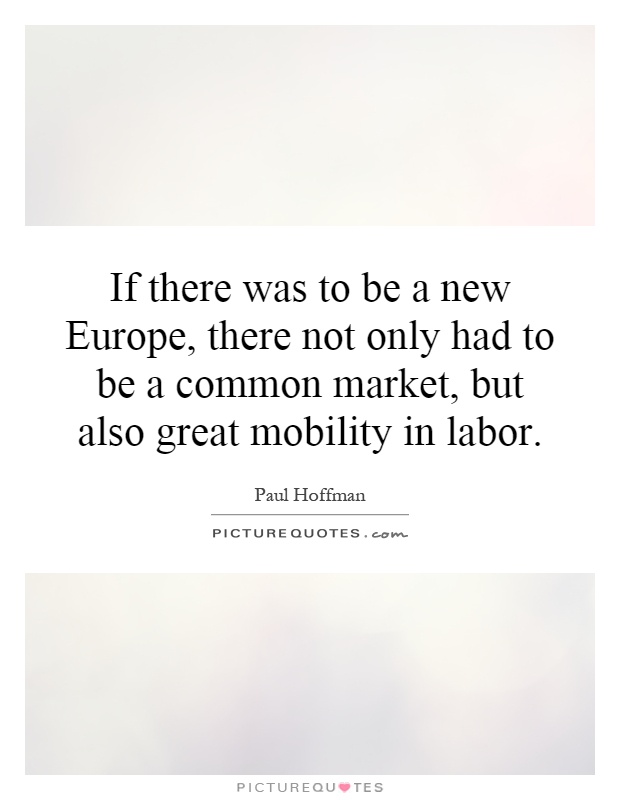
If there was to be a new Europe, there not only had to be a common market, but also great mobility in labor
Paul Hoffman, an American industrialist and administrator, played a crucial role in the reconstruction of Europe after World War II. As the head of the Economic Cooperation Administration (ECA), he was instrumental in implementing the Marshall Plan, which provided billions of dollars in aid to help rebuild war-torn countries and stimulate economic growth. Hoffman understood that in order for Europe to truly recover and prosper, there needed to be more than just financial assistance. He believed that there needed to be a new Europe, one that was united not only economically but also socially and politically.One of the key aspects of Hoffman's vision for a new Europe was the creation of a common market. He understood that by breaking down trade barriers and promoting economic integration, European countries could benefit from increased trade and investment, leading to greater prosperity for all. The establishment of a common market would also help to prevent future conflicts by fostering closer economic ties between nations. Hoffman believed that a common market was essential for creating a more stable and peaceful Europe.
However, Hoffman also recognized that economic integration alone was not enough. In order for Europe to truly thrive, there needed to be great mobility in labor. This meant that workers should be able to move freely across borders in search of employment opportunities. By allowing for greater labor mobility, European countries could better match supply and demand in their labor markets, leading to increased efficiency and productivity. Additionally, labor mobility would help to address regional disparities in employment and wages, allowing workers to find better opportunities in other parts of Europe.
Hoffman's emphasis on labor mobility was ahead of its time, as it would take several decades for the European Union to fully embrace the concept of free movement of workers. However, his vision for a new Europe that was not only economically integrated but also socially and politically united laid the groundwork for the European project that would eventually emerge. Today, the European Union stands as a testament to Hoffman's belief in the power of cooperation and integration to promote peace and prosperity.
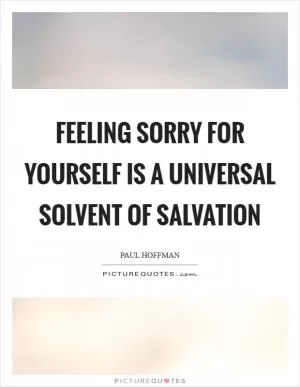

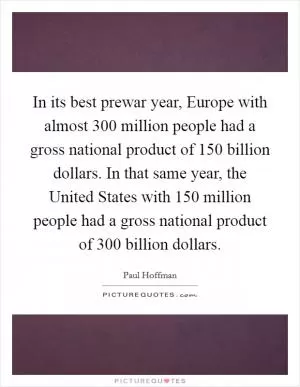
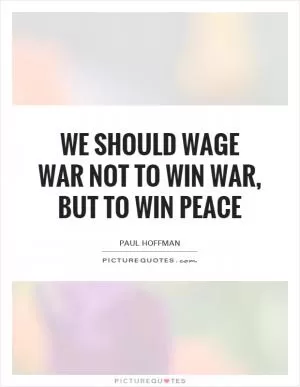
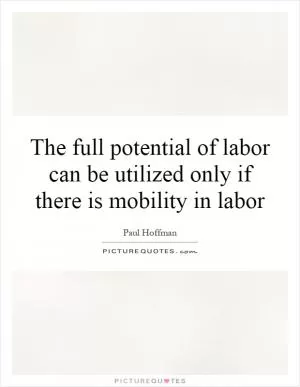
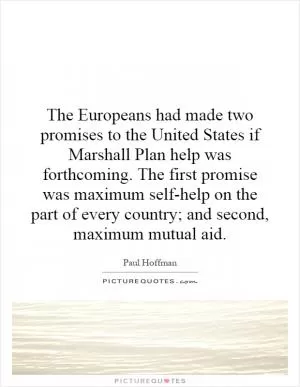
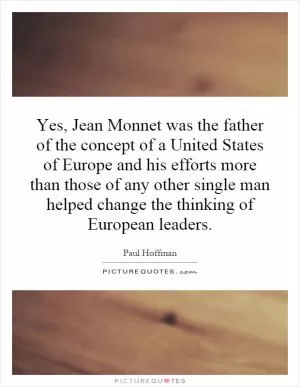

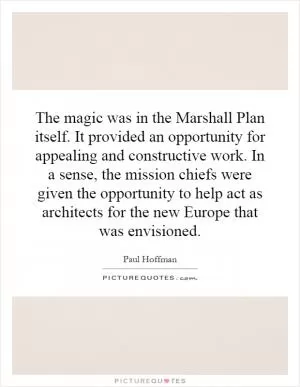
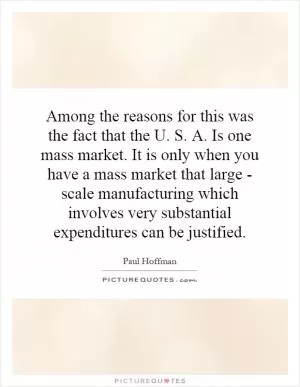
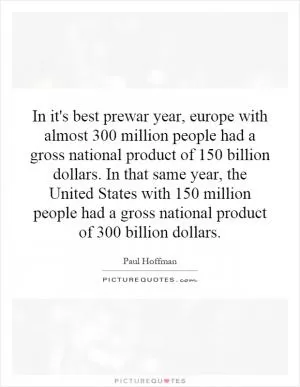
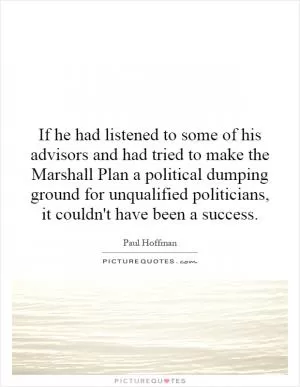
 Friendship Quotes
Friendship Quotes Love Quotes
Love Quotes Life Quotes
Life Quotes Funny Quotes
Funny Quotes Motivational Quotes
Motivational Quotes Inspirational Quotes
Inspirational Quotes